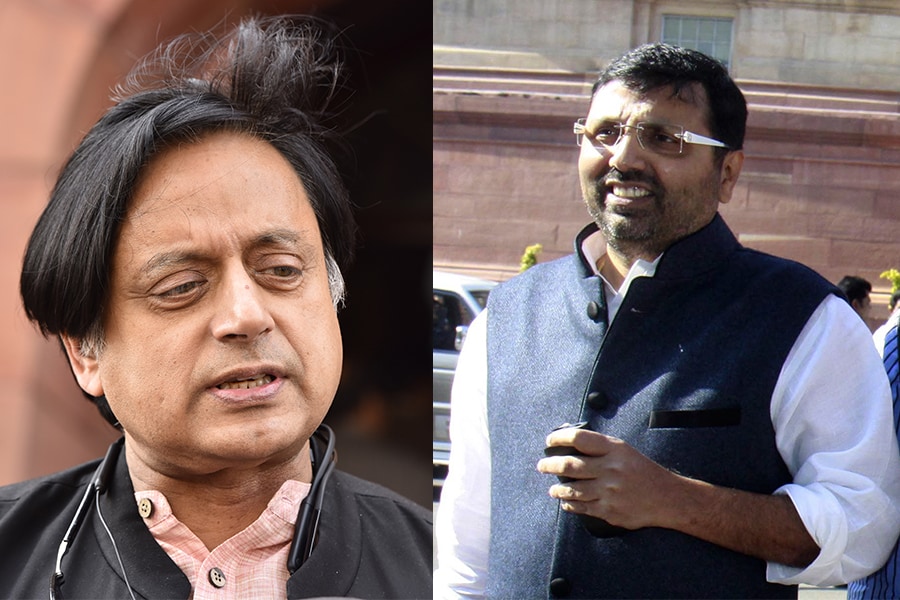
BJP MPs successfully thwart attempts to discuss Pegasus issue in IT Parliamentary Committee
After a dramatic day involving a walkout, BJP MPs scuppered attempts to establish quorum for the Parliamentary Standing Committee on IT
 Images: Getty Images
Images: Getty Images
Update (July 28, 2021 8:58 pm): The drama continued Wednesday as the Parliamentary Standing Committee on Information Technology met to discuss the Pegasus Project. Eleven BJP members turned up for the meeting but refused to mark their attendance in the register. As a result, the required quorum of ten members could not be reached and the meeting could not be officially convened with just nine on-the-record members.
The Shashi Tharoor-led committee had summoned secretaries of ministries of home affairs (Ajay Kumar Bhalla), and electronics and information technology (Ajay Prakash Sawhney), and the department of telecommunications (Anshu Prakash) to discuss the revelations made around the use of Pegasus spyware. Two hours before the meeting was supposed to begin, all three secretaries sent their regrets, citing reasons ranging from needing to answer parliament questions to attending other meetings in the parliament.
It is understood that Tharoor conversed with Lok Sabha Speaker Om Birla about this incident. The next date of the meeting has not been announced yet.
Apart from that, a shouting match also erupted between TMC Lok Sabha MP Mahua Moitra and BJP Lok Sabha MP Nishikant Dubey. Dubey alleges that Moitra called him a “Bihari gunda (goon)” and the spat also spilled over on to Twitter. On being asked his stance on the Pegasus issue, Dubey told Forbes India, “[Moitra] calling me a Bihari gunda is a more important issue than Pegasus. Does this mean that Chanakya, Gautam Buddha, et al were goons?”
Story (published on July 28, 2021 12:08 pm):








